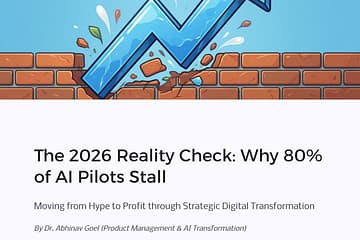“I don’t think the human race will survive the next thousand years, unless we spread into space. There are too many accidents that can befall life on a single planet. But I’m an optimist. We will reach out to the stars.”
Stephen Hawking

There were times when Space Travel eluded us as that crazy science fiction that we could experience by watching movies or series like Star Wars and Star Trek. There are approximately 600 people who have been to Space from our beloved planet Earth, but that shall be changing sooner than later.
Billionaires like Jeff Bezos, Elon Musk and Richard Branson are competing for neck-and-neck to become the leaders in this emerging market of commercial space tourism. And, this Space Race has never been much out in the open than this year to claim supremacy over Space after building only the world’s biggest enterprises from the ground-up.
How it started?
Space Exploration Technologies Corp, or SpaceX, was established in 2002 to make space transportation cheaper to make it sustainable for setting up human colonies over Mars. After initial failures, SpaceX did the first private space company that launched and recovered rockets for re-usability and then sent astronauts to space.
Jeff Bezos founded Blue Origin in 2000 to make sub-orbital space flights cheaper and accessible using reusable launch vehicles. The mission statement suggests that Bezos was never aiming for interplanetary space travel but to become a unicorn in the commercial space travel genre.
The aviation mogul Richard Branson did not want to hold back and founded Virgin Galactic in 2004 with a mission to be the numero uno of sub-orbital space flights leading the space tourism industry.
How it’s going?
Feb 1, 2021: Elon Musk’s SpaceX has already showcased its rocket system prowess by taking crew to the International Space Station (ISS) successfully. As if this was not enough, SpaceX announced that it would be sending an all-civilian crew of four members to space aboard Crew Dragon Resilience in September 2021.
The flight to the low Earth orbit is named “Inspiration 4” and is sponsored by US billionaire Jared Isaacman.
June 7, 2021: Jeff Bezos, the billionaire founder of notably one of the most influential enterprises on the planet, Amazon, announced that he would be flying to the brink of space aboard Blue Origin’s spacecraft “New Shephard” on July 20.
It was already a bold statement to be stepping down as the CEO of Amazon and then being the first to kick off commercial space tourism. Still, he topped it up by choosing his brother to fly alongside him, not to mention the iconic date of July 20 that marks the 52nd anniversary of Apollo 11 since it landed the first human on the Moon.
The launch is supposed to be his big moment after Jeff Bezos’ space company Blue Origin took a beating from Elon Musk’s SpaceX when NASA announced that they would be contracting SpaceX’s Starship rocket system to land astronauts on the Moon by 2024. But…
July 2, 2021: Richard Branson, the flamboyant billionaire founder of the Virgin Group, announced that he would be accompanying the crew of his space company Virgin Galactic’s VSS Unity spaceplane as a Mission Specialist for Customer Spaceflight Experience taking off on July 11.
Yes! That is just nine days before Bezos’ space flight slated for launch on July 20. But, of course, that is just a crazy coincidence, right? As per the initial reports, Branson was not supposed to go on the next two test flights. However, he preponed it to snatch that symbolic value and victory from the hands of his business adversary Jeff Bezos and earn the bragging rights to be the first to carry out a successful commercial space tourism flight.
What’s the fuss?
I conducted a small survey over Linkedin asking people what they think is the primary reason for billionaires engaging in such an ego-fueled fight for space tourism.

Almost 50% feel that space travel is billionaires “Next Big Thing”, and I almost agree with that. However, they decided to pursue a service like space travel that had great potential and did not exist when they founded their respective space warrior companies, just like their previous conglomerates like Amazon, Virgin Atlantic, and Tesla. The initial intent was to make space travel possible by developing technologies that may bring down the cost of goods, making it affordable and accessible to more people.
But, in the present context, the vision seems to driven by ego than with jet fuel. Therefore, I can safely say that this can be named the Space Race of the modern era. Think about the times of the cold war when the US and USSR were manufacturing weapons of mass destruction, ignoring the fact that their economies were hitting rock bottom and people are in jeopardy. All of them have developed some fantastic methods and technologies to make space travel safer, smarter and affordable than ever, but now it has come to a point where they could be ready to risk anything to get to that podium finish over their competition.
What do I think?

Now, I am not suggesting that Bezos, Branson and Musk should stop what they are doing, absolutely not! However, it is time for them to collaborate and do the 10X action to make this vision into reality, saving each of them ample time, resources, and funds. Take an example of the International Space Station, had it only been NASA to build and maintain the ISS, it would have been a very tough job, but now multiple space agencies share the resources in terms of astronauts, spares and new developments/upgrades.
Another example of such a level of collaboration is the Higgs boson experiment or famously known as the “God particle experiment“, required to set up a lab of monumental size and structure. Had it been up to a single nation, it would have taken them 50 years to build the lab, let alone conducting the experiment and sharing the results in 2012 while the lab was set up in 1953. Instead, it resulted from mass cooperation among 23 nations that supported the investigation by providing labour, technicians, research teams and hardware to sustain the experimentation.
Many airline carriers have formed alliances to pool their bookings and transit flights, making it easy for each airline to offer better options to the customers and competitive rates. Consequently, some cooperative coalition among companies like SpaceX, Blue Origin and Virgin Galactic would not just make a sub-orbital but interplanetary exploration a possibility in the next few years rather than the next couple of decades. But will these self-made titans be ready to come out of their castles and declare them as a union under one flag, planet Earth?
Let me know what you think about the Space Race, and feel free to share your thoughts in the comments.



Great article Abhinav,
I agree with you that sharing resources and research will make space tourism and interplanetary travel achievable much faster and looking at the cost of each individual travel and the risk involved, it will mean saving a lot of money for these companies.
But doing so can also create a monopoly by making it hard for new comers. Even if they unite under “planet earth” and presumably open-source all findings, it might still be hard for a small start-up to challenge or compete with them.
All in all, I’m excited about what the future holds for space travel and pray it becomes possible AND affordable in our lifetime.
Fair point Ibrahim, but yes, space travel is now more real than ever indeed!
Great post Abhinav! The Space Race is on.
To draw parallels with the launch of any Next Big Thing, competition is fierce. In the beginning, any tech witnesses such gatekeeping. E.g. Artificial Intelligence. The democratisation of AI services and platforms have a huge role to play in increasing the tech players and turning the AI hype to reality.
Its a matter of time but until then theres understandably a want to be remembered as the first or one of the firsts. Fortunately, there’s plenty of space in Space. Take it easy folks!